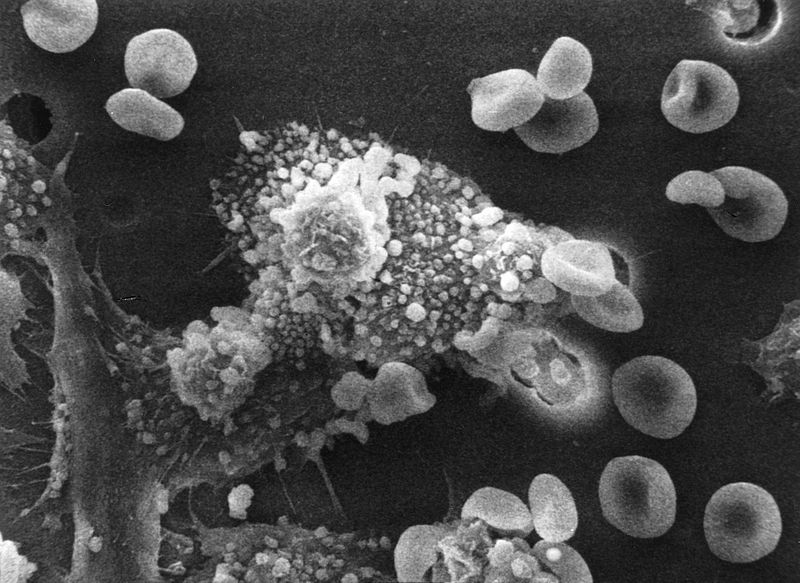Nature: Immune cells engineered to target cancer could provide an off-the-shelf therapy if results in mice can be replicated in people. Previous
work has shown that engineered T cells called CAR-T cells can be taken
from a patient and modified to kill some types of tumour, but the supply
can be limited. To make a more reliable, universal source of donor
cells, Carl June, Yangbing Zhao and their colleagues at the University
of Pennsylvania in Philadelphia used the genome-editing tool CRISPR–Cas9
to tweak human CAR-T cells. They disabled two proteins that can trigger
immune rejection of donor T cells, resulting in a reduced reaction from
the immune system when the cells were used in mice.
The team also disrupted a protein called PD-1, which normally holds immune responses in check. The cells slowed the growth of human tumours implanted into mice. Further testing of immune responses should be carried out in non-human primates, the authors say.
Clin. Cancer Res. http://doi.org/bsvc (2016)
The team also disrupted a protein called PD-1, which normally holds immune responses in check. The cells slowed the growth of human tumours implanted into mice. Further testing of immune responses should be carried out in non-human primates, the authors say.
Clin. Cancer Res. http://doi.org/bsvc (2016)
